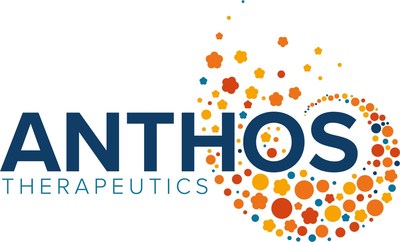Anthos Therapeutics, a clinical-stage biopharma company developing innovative therapies for cardiovascular and metabolic diseases, today announced that the first patient had been enrolled in a phase 3 clinical trial investigating a Factor XI agent.
| Abelacimab is a dual-acting fully human monoclonal antibody targeting both Factor XI and Factor XIa with high affinity and selectivity Robust phase 3 clinical program includes two complementary trials (ASTER and MAGNOLIA) that will enroll ~2700 patients to study abelacimab in patients with Cancer Associated Thrombosis (CAT) The ASTER study will compare abelacimab against the most widely prescribed Factor Xa agent CAMBRIDGE, Mass., May 5, 2022 /PRNewswire/ -- Anthos Therapeutics, a clinical-stage biopharma company developing innovative therapies for cardiovascular and metabolic diseases, today announced that the first patient had been enrolled in a phase 3 clinical trial investigating a Factor XI agent. The ASTER study is one of two complementary, international, multicenter trials where abelacimab is being studied in patients with Cancer Associated Thrombosis (CAT). In the ASTER trial, Anthos’ novel dual-acting Factor XI monoclonal antibody, abelacimab, is being compared to apixaban, the leading Factor Xa inhibitor, to assess their effects on venous thromboembolism (VTE) recurrence and bleeding in patients with cancer associated VTE. “Encouraged by evidence from a recently completed positive phase 2 study,1 we believe abelacimab could become an important new treatment option for the treatment and prevention of thrombosis in a variety of patients, including those with Cancer Associated Thrombosis. Abelacimab’s novel dual inhibitory activity offers the potential to provide effective antithrombotic activity with a reduced risk of bleeding compared to existing therapies. Additionally, the monthly dosing of abelacimab could reduce the burden of a daily regimen, such as daily injections or pills, for patients already receiving multiple therapies including chemotherapy,” said Gary E. Raskob, Ph.D., Interim Senior Vice President, and Provost at the University of Oklahoma Health Sciences Center and the Chair of the Abelacimab CAT Program Steering Committee. Venous Thromboembolism (VTE), which includes both deep vein thrombosis and pulmonary embolism, is the second most prevalent cause of death in patients with cancer, second only to the disease itself.2 However, treatment of CAT can be challenging because the currently available anticoagulants used to treat VTE can have an increased risk of bleeding.3,4 “An acute episode of thrombosis in patients with cancer adds additional complexity to the treatment of cancer itself and is a grave concern for physicians, patients, and caregivers. Our extensive phase 3 program for abelacimab includes two trials specifically designed for patients with Cancer Associated Thrombosis, including those with a particularly high risk of bleeding. Enrolling the first patients in the ASTER phase 3 trial is an important first step toward making an effective and potentially safer anticoagulant available to patients with cancer. This phase 3 program is in addition to our ongoing phase 2 AZALEA-TIMI 71 trial comparing abelacimab to rivaroxaban in atrial fibrillation (AF), which completed enrollment with 1,287 patients in December 2021. This study, the largest trial to date with a Factor XI inhibitor, will compare bleeding rates in AF patients treated with abelacimab and rivaroxaban,” said Dan Bloomfield, M.D., Chief Medical Officer, Anthos Therapeutics. About Abelacimab About the Abelacimab Phase 3 Program in Cancer Associated Thrombosis (CAT) ASTER is an international multicenter, randomized, open-label, blinded endpoint evaluation, phase 3 study comparing the effect of abelacimab relative to apixaban on venous thromboembolism (VTE) recurrence and bleeding in patients with cancer associated VTE in whom DOAC treatment is recommended. Abelacimab 150 mg will be administered intravenously (IV) on Day 1 and subcutaneously (SC) monthly thereafter for up to 6 months; Apixaban 10 mg will be administered orally, twice daily (bid) for the first 7 days, followed by 5 mg bid up to 6 months. MAGNOLIA is an international multicenter, randomized, open-label, blinded endpoint evaluation, phase 3 study in patients with gastrointestinal (GI) / genitourinary (GU) cancer in whom DOAC treatment is not recommended. The study will compare the effect of abelacimab relative to dalteparin on VTE recurrence and bleeding in patients with cancer associated VTE who are at a high bleeding risk with non-resectable, locally or regionally invasive GI / GU tumors. Abelacimab 150 mg will be administered intravenously (IV) on Day 1 and subcutaneously (SC) monthly thereafter for up to 6 months; dalteparin administered subcutaneously will be given daily, 200 IU/kg/day for the first month, and then 150 IU/kg/day up to 6 months. About the AZALEA-TIMI 71 Phase 2 Trial
About Anthos Therapeutics For more information visit the website at https://www.anthostherapeutics.com/, Twitter at https://twitter.com/Anthos_Tx, and LinkedIn at https://www.linkedin.com/company/anthos-therapeutics/. Forward Looking Statements Media Contacts: Russo Partners LLC Olipriya Das, PhD (646) 942-5588
SOURCE Anthos Therapeutics |





